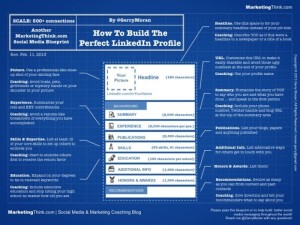There are AI-powered toothbrushes, coffee makers, mattresses, baby monitors and snow blowers. What there isn’t: People who want to buy them.

Marketers’ primary job is to know what the customer wants. It’s simple, but not easy. When Jim Stengel was CMO of Procter & Gamble, he told me, “You can never know the customer too well.” Jim knew his customers well enough that he turned Swiffer (an upgraded dust rag) into a multi-billion dollar brand platform.
If there is one thing the public has made clear, it’s that they are not impressed by AI in their products. The most recent evidence: A study of 1,000 people found products described as having AI were consistently less popular than those that weren’t.
“When AI is mentioned, it tends to lower emotional trust, which in turn decreases purchase intentions,” said lead author and Washington State University clinical assistant professor of marketing Mesut Cicek in a statement. “We found emotional trust plays a critical role in how consumers perceive AI-powered products.”
AI means less likely to purchase
For example, researchers found people were far less likely to purchase a smart television when its description included “artificial intelligence.” A separate group was far more likely to buy it when the words were omitted from an identical description.
The effect was even greater with high-risk/big-ticket purchases like expensive electronics or medical devices. Researchers said this could be because consumers are more wary of monetary loss or danger to physical safety.
This is not an outlier study.
So you can imagine my reaction when the following showed up in an email this morning: “Startups and brands must take steps to demystify AI to consumers (and therefore not have it be such a turnoff of a term/so jargony) and reduce the black box effect — explaining it in simplified terms, and making it accessible/empowering for everyone to understand and use. “
Why? Why not listen to what consumers are saying?
Listen to consumers
For consumers, AI is the latest version of the Internet of Things. It is a technology added to products even when it provides little or no value for the consumer. Why are there internet-connected refrigerators, toothbrushes or dishwashers? I have seen a mirror that could not be used because it needed to reboot. (I will spare you my rant about IoT locks and lighting systems.)
While there are useful IoT products, a lot seem to exist so manufacturers can collect data on the users.
Likewise, consumers dislike AI because it is something the company thinks they need and not anything they want. Oral-B just released an AI toothbrush to tell you what spots you missed. There are AI grills promising steaks cooked exactly as you want them. There are AI coffee makers, mattresses, pillows, baby monitors, snow blowers, “dog companion robots,” and far too many more.
Let’s all take a breath and remind ourselves what generative AI is. It’s a stochastic parrot that answers questions based on what its data set says is the most frequently used answer in similar circumstances. It is such an inherently flawed product that companies warn people not to trust its output. I am reminded of this every time I open up Facebook and the AI asks me things like, “Do you want to know more about light?”
The solution to consumers’ dislike of AI is not “explaining it in simplified terms, and making it accessible/empowering for everyone to understand and use.”
Consumers know enough about AI to know it doesn’t interest them. According to Forrester’s March 2024 Consumer Pulse Survey, only 31% of U.S. consumers have used genAI; 58% have heard of genAI but have never used it. Keep in mind, U.S. consumers are way ahead of those in other countries when it comes to using AI.
Demystify AI? There’s no mystery. Consumers know companies want consumers to want AI. Some may even know the companies pushing this idea are working to find use cases for AI in their own businesses.
What brands should do is make things consumers want. If it uses AI, that’s nice, but consumers don’t care about it any more than they do about what computer chips are in their cars.
Make things people want. Simple, but not easy.
The post For consumers, AI is the new IoT appeared first on MarTech.
(4)
Report Post








